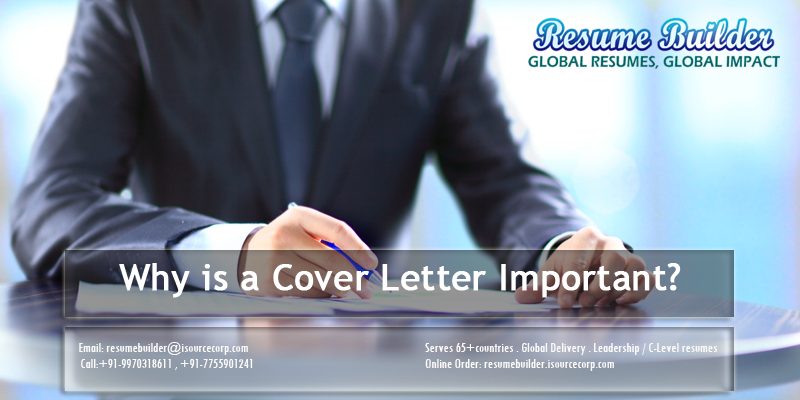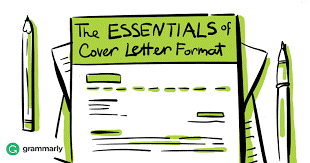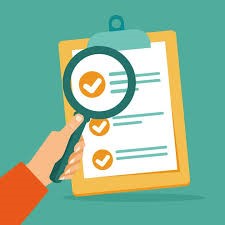Why is a Cover Letter Important?
It goes without saying that you ought to include a cover letter when requested one, but on the other hand it’s vital to see how most selection representatives see your materials. According to surveys, most hiring managers or recruiters will view applicant’s resumes before evaluating their cover letter. If so, you should make sure to move your needs with regards to creating your “consideration grabber.” For some, composition a one of a kind introductory letter is an extraordinary chance to flaunt our individual abilities and interests. In any case, if the resume is without a doubt the most imperative report you’ll submit when applying for a vocation, you should ensure that your resume will catch and hold your potential bosses’ consideration.
In the event that you do need to present a cover letter, you should try to make a letter that has an effect rapidly. For most contracting administrators or selection representatives, there are essentially insufficient hours in the day to peruse a full-page introductory letter from every candidate. While creating a compelling introductory letter, you ought to consider using visual cues to highlight any achievements or experience that applies to the employment opportunity. It can likewise measure achievements and experience by utilizing numbers, insights, rates, or particular time spans. At last, concentrating on what you can accomplish for the organization, instead of concentrating all alone needs, will go far towards helping you get hired!
For a start, you ought to know who the last individual is. “Introductory letters ought to be routed to a man, not to a Sir/Madam, on the grounds that propelled work seekers do their exploration,” prompts Jim Bright. “Powerful introductory letters resemble trailers for movies – they set the tone, empower assist engagement and set up foresight.” So ask yourself, have you accentuated your most applicable experience/accomplishments to set up that expectation? Somewhat necessarily, then, this additionally implies each introductory letter you send ought to be diverse to the last. In the event that you have one introductory letter for all your employment applications you’re not making enough of an effort. Tailor each letter to the particular prerequisites of the position being referred to. Also, don’t commit a basic error – guarantee you determine which work you need to apply for on the grounds that huge firms will probably have various employments on offer at any given time, each with various reference codes.
Because you’ve composed an awesome letter doesn’t imply that everybody will read it. The progression of time is most clear in the cover letter’s changing organization and appearance. Nobody opens a physical envelope any longer, and even the fax has generally vanished. Your decision, then, is whether to work up a pleasantly organized Microsoft Word or PDF form and join it as page one of the CV—or, as a great many people do, isolate them into two separate reports. If you’re applying onli ne, you’ll probably just paste your cover-letter text into a box.
Consider the cover letter your first bit of expressive business composing. It’s a business instrument. It is not intended to be a rehashing of what is in your CV, or a multi-page meander on what you’ve done at work and what you need out of life. The introductory letter ought to be an obviously composed, brief, three-passage rundown that prods the reader into needing to know more about you.
First Paragraph:
This is the place you clarify how you and the reader are associated. “You’ll review that we met at the PAG 2013 meeting in USA where we had some espresso with our shared companion Dan.” Or, “I saw the ad for a senior researcher in your procedure advancement group and needed to attract your regard for my CV.” I don’t think you ought to ever compose a “To Whom it May Concern” letter, yet you will most likely be unable to keep away from it on the off chance that you are applying by means of their online application prepare.
Second Paragraph:
This is the basic passage, where you draw out the enormous weapon—your most pertinent achievement—and tempt the reader to take a gander at your CV. Here’s the place you put that to utilize. “I’m certain that the researcher you contract for process advancement should have extraordinary basic speculation aptitudes to help the organization’s program in microbial process improvement. I showed such aptitudes, to refer to one case, after my manager requesting that I settle an issue where a seat scale E. coli maturation had dropped 30% in yield, all of a sudden and without obvious cause. My approach was to take it back to shake carafes and do a bio analytical contemplate. I figured out how to enhance the media and we could get the procedure up and running once more, with a 6% expansion in throughput for the optional metabolite of intrigue.”
Third Paragraph:
Specialists will reveal to you that the way to an invitation to take action lies in its effortlessness, so don’t try too hard. The objective is to recommend what ought to occur next: “I would love to have a chance to meet with you or your HR business accomplice, face to face or by telephone, to talk about your organization’s needs and my fit with those requirements. Then again, I’ll be in Boston one month from now for the American Society for Microbiology meeting; I’ll check in with you in advance to check whether we can meet.” If there are any “issues” with your CV—a long crevice because of ailment, parenting, or unemployment, for instance—this is the section where those ought to be defused.
In conclusion, keep your cover letter brief. Keep in mind, HR would prefer not to know your biography; they need to know why you’re the opportune individual for the employment. Utilize close to a page, keep it on point and kill waffle and redundancy. Keep it positive. A strong cover letter along these lines is certain to keep you from turning out to be simply one more application in the heap.
Post Author:
Amrita Kolay







